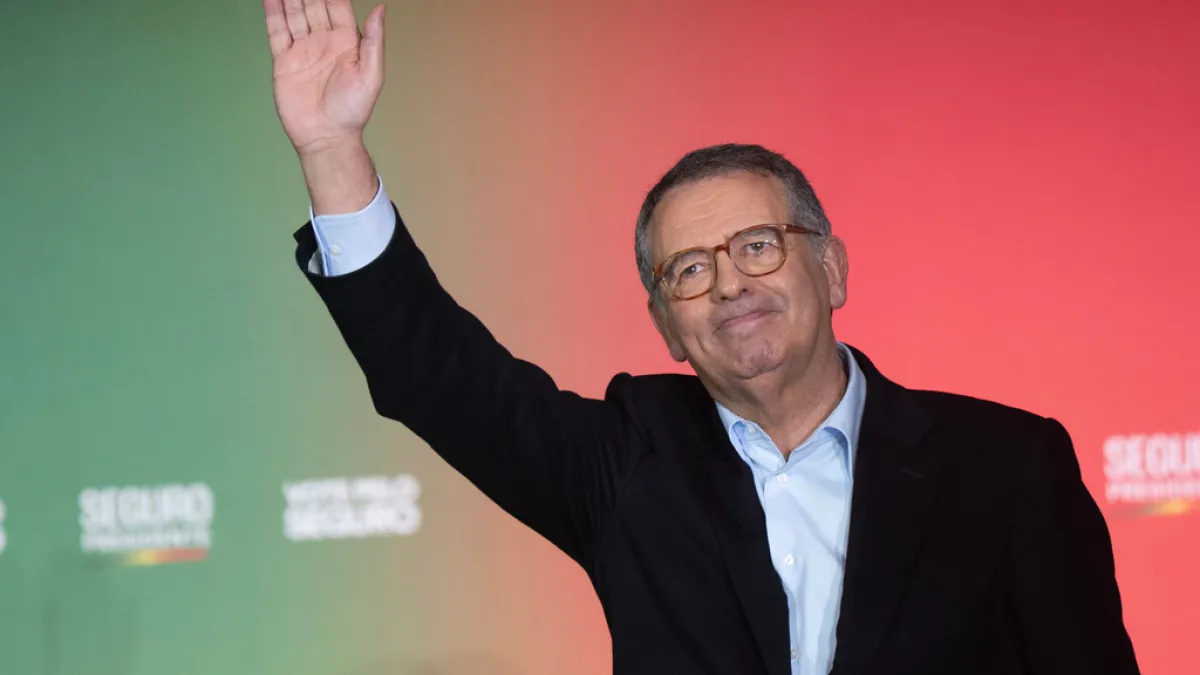Portugal elects Socialist Party’s Seguro as president in landslide | Elections News
With 95 percent of votes counted, 63-year-old Antonio Jose Seguro is on 66 percent.
Published On 8 Feb 2026
Antonio Jose Seguro of the centre-left Socialist Party has secured a landslide victory and a five-year term as Portugal’s president in a run-off vote, beating his far-right, anti-establishment rival, Andre Ventura, according to partial results.
With 95 percent of votes counted, 63-year-old Seguro has garnered 66 percent. Ventura trailed at 34 percent, still likely to secure a much stronger result than the 22.8 percent his anti-immigration Chega party achieved in last year’s general election. Ballots in large cities such as Lisbon and Porto are counted towards the end.
Recommended Stories
list of 3 itemsend of list
Two exit polls have placed Seguro in the 67-73 percent range, and Ventura at 27-33 percent.
A succession of storms in recent days has failed to deter voters, with turnout at about the same level as in the first round on January 18, even though three municipal councils in southern and central Portugal had to postpone voting by a week due to floods. The postponement affected some 37,000 registered voters, or about 0.3 percent of the total, and is unlikely to influence the overall result.
Portugal’s presidency is a largely ceremonial role, but it holds some key powers, including the ability to dissolve parliament under certain circumstances.
Ventura, 43, who had trailed Seguro in opinion polls, had argued that the government’s response to the fierce gales and floods was “useless” and called for the entire election to be postponed.
However, the authorities rejected the demand.
Seguro, during his last campaign rally on Friday, accused Ventura of “doing everything to keep the Portuguese from turning out to vote”.
Despite his loss on Sunday, Ventura, a charismatic former television sports commentator, can now boast increased support, reflecting the growing influence of the far right in Portugal and much of Europe. He is also the first extreme-right candidate to make it through to a run-off vote in Portugal.
Meanwhile, Seguro has cast himself as the candidate of a “modern and moderate” left, who can actively mediate to avert political crises and defend democratic values. He received backing from prominent conservatives after the first round amid concerns over what many see as Ventura’s populist, hardline tendencies.
But Prime Minister Luis Montenegro – whose minority centre-right government has to rely on support from either the Socialists or the far right to get legislation through parliament – declined to endorse either candidate in the second round.
While the role is largely ceremonial, the head of state has the power to dissolve parliament and call early elections.
The new president will succeed outgoing conservative Marcelo Rebelo de Sousa in early March.
